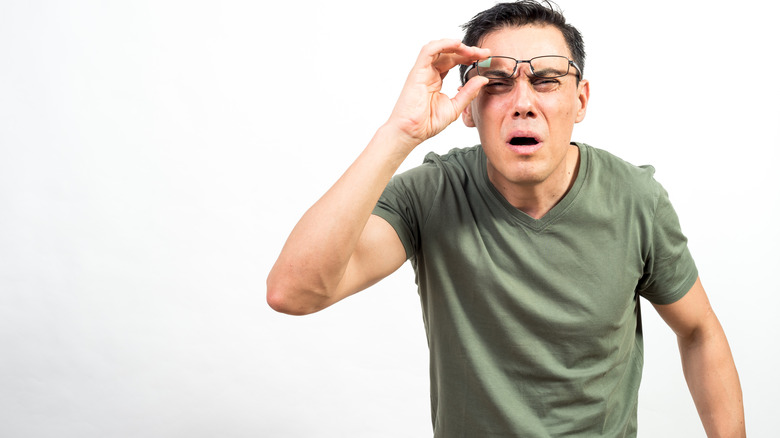Nearsighted Versus Farsighted: What's The Difference?
While vision problems are quite common, many people often get confused between the meanings behind nearsighted and farsighted. Vision issues occur when a person sees objects that appear blurry and unfocused. How close or far these objects are in proximity to you will determine whether you are nearsighted or farsighted (via Healthline).
Being nearsighted, a condition also called myopia, means that you can see objects clearly that are close to you, but that you have difficulty making out objects that are far away. Farsightedness, on the other hand, means you have no trouble seeing distant objects, but have problems seeing those that are close. To test if you are nearsighted or farsighted, try reading something up close, and then try reading something far away in the distance. Depending on which is blurrier for you, you may be able to determine if you are farsighted or nearsighted.
Causes and risk factors for nearsightedness and farsightedness
According to the American Optometric Association, myopia affects about 30% of Americans. While researchers have yet to determine what exactly causes nearsightedness, it is believed that it can be inherited. If one or both of your parents has myopia, you are at a greater risk for it. Myopia may also be brought on by varying blood sugar levels in people living with diabetes. It's also possible to experience temporary nearsightedness, such as when a person spends too much time staring closely at objects like screens. After long periods of such overuse, it may be difficult to refocus the eyes. Normal vision usually returns after taking a break from intense focus, but continuous overuse may lead to vision trouble over time.
Farsightedness is a bit less common, affecting 5 to 10% of the U.S. population, according to the Cleveland Clinic. This condition can also develop as a part of the natural aging process, affecting more than half of adults over the age of 65. Like myopia, the condition can also be inherited.
If you are having trouble with your vision, talk to your doctor. Seeing clearly again can be as simple as getting a pair of prescription glasses or contact lenses. A healthcare professional can also determine if something more serious is the cause of your vision troubles and help you find the appropriate treatment.


